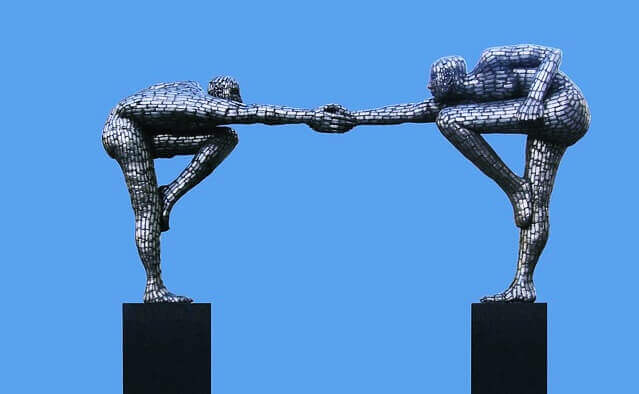The best example of this kind of strength is Gandhi’s. The great advantage of his struggle was that he managed to conquer an empire, and that he did so with his strength and the strength of his convictions, renounging violence. There are many other everyday heroes less mentioned in the history books that increase the truth of this fact with their actions: strength comes from the values of others.
Many throughout history have suffered the most terrible regrets just to defend their convictions. They’ve shown impressive strength. A force that comes from within, from what is in your mind and in your heart. There is no need for physical, economic or other superiority. They manage to support themselves and often win using only their moral superiority.
- “Your values define who you really are.
- Is your real identity the sum total of all your values?.
- – Assegid Habtewold-.
This also happens in our less theatrical and more everyday lives, we are able to face situations of injustice, lying or dishonor when our values are confronted and become a compass to follow, the same goes for our goals: we are able to pursue them. when they rely on very clear and defined values, that’s what gives us strength. This is what allows us to resist, persevere and not give up.
Ethics is the most valuable product of culture and also of the individual. Values are the elements that bring coherence to a society, they are also those that allow coexistence making social life possible, these implicit and explicit pacts on the good or desirable and the bad or reprehensible are the elements that shape the social fabric.
According to Jean Piaget, autonomous ethics is the most advanced point in the moral evolution of a being, only achieved when intelligence has developed sufficiently, is the result of a long maturation process, ranging from anomia or total lack of values. with which we were born, to autonomy, or the ability to think for ourselves and draw our own conclusions.
In addition to its social importance, ethics also plays a decisive role in individual life, guides actions and makes sense of them. It’s also the strength that allows you to face difficulties and stay awake in the toughest times.
For some, this personal ethics are maintained, based on religion or dictation. In this way, in the most difficult times, these people adhere to their religious values. For others, ethics is a philosophy, a thesis, or some other kind of belief. There are also those who renounce their values and adopt a pragmatic and cynical view of life. In this case, individuals also waive the attribution of meaning to actions that go beyond personal interests and convenience, living for themselves. They protect themselves from disappointment, but at the same time impoverish their lives.
Human beings go through an evolutionary process before building their own values. Not everyone is coming to the end of this process. Many are in the evolutionary phase known as “heteronomy”. At this stage, the child, or the adult, does not act according to their beliefs or values, but is guided by what the authorities impose. For them, either or wrong is what the numbers above them have defined. Its main objective is not to contradict the figures of authority.
When moral development ends, the only authority to which one obeys is one’s conscience, the difference with the previous steps is that values are not assumed by tradition, repetition or because an authority has ordained it, become the result of personal reflection and are often contrary to what most society holds , in a word, are autonomous values.
Let’s think the values are meant. Attributes deemed desirable or deserving of promotion. They guide behavior and make sense of actions. They involve a commitment: to be on the side that is deemed appropriate or correct. Ethics, however, is flexible. It is not a dogmatic mandate, it always depends on the constant and conscious assessment of the different situations that arise on the part of the person, precisely why values provide strength: a dependence only on consciousness, not on an external order or improvisation.
We have reached a point where we must ask ourselves what values underlie our behaviors and actions. We often simply decide what we believe by custom or tradition, or simply because most people believe in something. This is exactly what makes us feel. Lost at certain times in life. Ethics not only gives us the strength to pursue what we want, but also allows us to stay constant and aligned most of the time.

